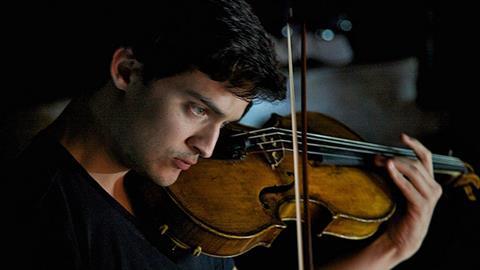The contemporary music specialist provides strategies for understanding and executing new works effectively

Preparing and performing contemporary music is often viewed as a daunting and stressful task, warranting five colours of marker scribbled frantically over huge pages of music. However, in my experience, once you’ve learnt the notes and investigated the work’s origins, the stresses lessen - and careful study reveals the many different approaches to creative thinking that exist today. The search for new sounds or new ways of using existing sounds, the often extreme expressiveness or even theatricality of the score and the synergy created between composer and performer are just some of the reasons that living with this music is such a joy.
When approaching any score for the first time, whether it’s a freshly penned work or a great masterpiece of the classical canon, our job as interpreters is to communicate as clearly and honestly as possible what the composer intended – the added bonus in the case of contemporary music being that we can oftentimes consult the composer directly! This dialogue further empowers us as performers to deliver exacting premieres of new music. Additionally, my work with living composers has given me greater insight into the immense care and dedication that goes into creating a new piece; the amount of time and energy I have observed my composer colleagues commit to their work is incredibly inspiring, so when we come to perform these works we owe them the same amount of commitment.
In practical terms, there are a number of strategies which enable us to understand and execute contemporary music effectively, including: notation study, experimentation with extended techniques and intonation systems, body awareness, listening exercises, and the study of the general artistic climate surrounding the creation of the work.
A composer’s choice of how to visually communicate instruction to a player immediately answers a number of aesthetic and interpretive questions: density of notes or material, speed of reading or playing notes, delicacy versus force of execution, etc. Notation is also crucial to understanding and differentiating between the great number of extended techniques possible on string instruments. When I first study a score that involves these techniques, I spend a great deal of time with the symbol key provided by the composer, ensuring that I completely understand how to read the signs fluently and perform each technique accurately. Next, and I think most importantly, I focus on the context of that technique and where it falls in the line of a phrase or in relation to other instruments. Composers are very specific in their directions, so we can learn a lot about the intended effect of each technique from where it is placed in the music.
Finally, many pieces of contemporary music require a laser-focused and attentive ear, both in terms of intonation and pulse/ rhythmic subdivision - 'deep listening' in the wonderfully poetic words of the late American composer Pauline Oliveros. Particularly in the case of microtonal music, we as string players have a wonderful opportunity to hone our relative pitch and discover the expressive possibilities of the many 'in between' notes available to us on the fingerboard. Quarter tone and eighth tone scales are a great way to work on this, as is playing along to a drone and noticing the varying degrees of beats that occur relative to the pitch’s distance from the tempered note.
Once these elements are in place, make sure you arrive on the stage with a sense of mental calm and tension-free relaxation throughout your body. This is particularly important in hyper-complex music, as the ability to follow the conductor, count, subdivide and play the many notes demanded simultaneously is only possible if your own body is completely neutral. Use the performance as an opportunity to fully manifest the compositional world you have so carefully studied and enjoy the fruits of what is often demanding but immensely rewarding work!
Violist Stephen Upshaw performs Jonathan Harvey's 'Jublius' with the Riot Ensemble on 3 May 2017 in London and at a lunchtime recital in Greenwich on 8 June 2017. For Stephen's biography and for further information visit http://www.stephenupshaw.com/
Read: ‘Classical music has become separated from contemporary culture,’ says violinist Jennifer Koh








































No comments yet